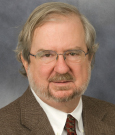James P. Allison, PhD, Chair of Immunology at The University of Texas MD Anderson Cancer Center, has been named the 2015 winner of the Lasker-DeBakey Clinical Medical Research Award from the Albert and Mary Lasker Foundation. The Lasker awards, in their 70th year, honor major achievements in basic science, clinical research, and public service around the world. Dr. Allison’s research is responsible for the development of immune checkpoint blockers, most notably ipilimumab (Yervoy), which remarkably extends the long-term survival of late-stage melanoma.
“I’m honored and grateful to receive the Lasker award. As a basic scientist, I was pleasantly surprised, really kind of stunned, to receive the clinical award,” Dr. Allison said. “This award is also important recognition of the early success of cancer immunotherapy and its great potential to extend survival of cancer patients for decades and, ultimately, to cure some types of cancer.”
“Dr. Allison found a way to remove the brakes that stop T cells from fighting tumor cells—a discovery that opens brand new and very effective ways to treat cancer,” said Joseph Goldstein, MD, Nobel Laureate, Chair of the Lasker Medical Research Awards Jury, and Chair of Molecular Genetics at The University of Texas Southwestern Medical Center in Dallas.
“The Lasker award highlights Dr. Allison’s genius, creativity, and passion to make an impact, all of which contributed to one of the most important therapeutic advances in a generation that continues to change the practice of oncology around the world,” said MD Anderson President Ronald A. DePinho, MD. “As we explore the full potential of immunotherapy, countless cancer patients already have experienced renewed promise and health thanks to this groundbreaking advance, and we remain hopeful for so much more.”
Founded in 1942, the Albert and Mary Lasker Foundation seeks to improve health by accelerating support for medical research through recognition of scientific excellence, public education, and advocacy. Mary Lasker was a prominent activist for public investment in medical research and is widely credited with motivating Congress and various presidents to expand federal funding, particularly through the National Institutes of Health. ■


